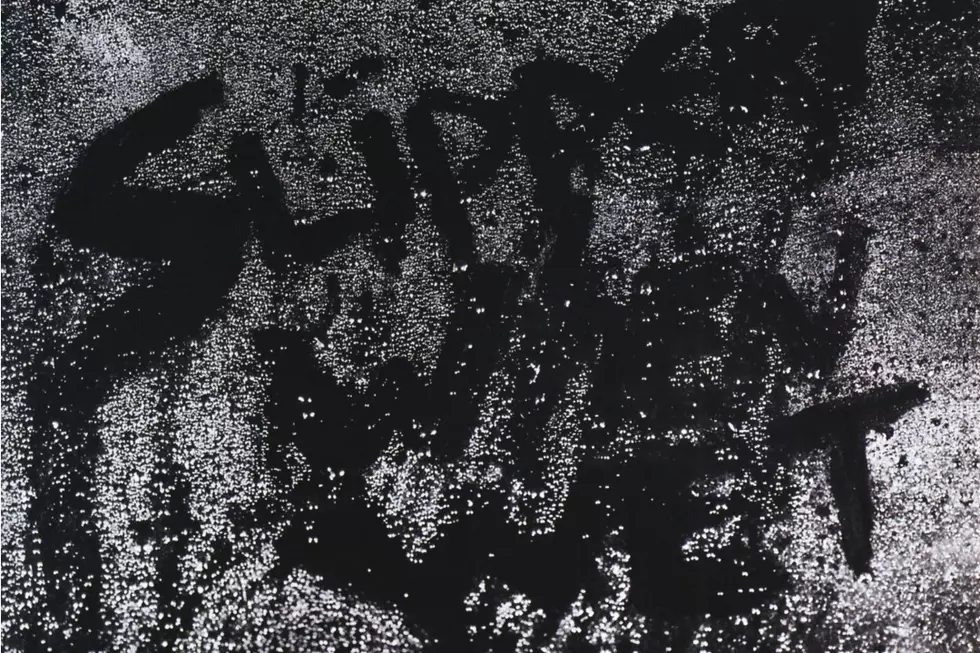
How Bon Jovi Fashioned the Career-Making ‘Slippery When Wet’
Bon Jovi did all right for themselves with their first two albums, but they were far from content with life in rock 'n' roll's second string. So for their third LP, they doubled down and aimed for the fences — and the result, 1986's Slippery When Wet, turned out to be a career-defining smash hit.
The band's 1984 self-titled debut and its follow-up, 1985's 7800° Fahrenheit, had both lingered near the lower reaches of the Top 40 — a respectable showing for a young act, but hardly the stuff careers are made of. Feeling like they needed to make their definitive statement, bandleaders Jon Bon Jovi and Richie Sambora opted for a conscious move toward the mainstream with their next set of new material, and the duo woodshedded a huge amount of new material along the way, piling up more than two dozen songs during writing sessions for the LP.
They also enlisted a little help from professional songwriter Desmond Child after learning he'd co-written the 1984 Kiss hit "Heaven's on Fire," inviting him to join Sambora and Bon Jovi in the basement at Sambora's mother's house for a series of writing sessions. As Child later recalled, their partnership was instantly productive: during the first day, they wrote future hit "You Give Love a Bad Name."
Bon Jovi also brought in fresh blood behind the boards, hiring producer Bruce Fairbairn — then coming off a string of hits for Loverboy and Honeymoon Suite — to helm the record with engineering and mixing assistance from his protégé (and future in-demand producer in his own right) Bob Rock. Convening at Fairbairn's Little Mountain Sound Studios in Vancouver, they set about bringing to life a group of songs that included "You Give Love a Bad Name," as well as eventual fan favorites such as "Livin' on a Prayer" and "Wanted Dead or Alive."
It was during this period that Slippery When Wet gained its name, courtesy of Vancouver-area strip clubs whose water-assisted stage shows made a big impression on the New Jersey natives. "The first day we walked in," Sambora said in Let It Rock: The Story of Bon Jovi's 'Slippery When Wet,' "this woman descended from the ceiling on a pole and proceeded to take all her clothes off. When she got in a shower and soaped herself up, we just about lost our tongues. We just sat there and said, 'We will be here every day.' That energized us through the whole project. Our testosterone was at a very high level back then."
Nightlife debauchery notwithstanding, the band remained wholly focused on putting out the best possible product, and the results manifested themselves in a 10-song track listing that encapsulated Bon Jovi's strengths while offering up some of the sharpest hooks and most memorable choruses of their career.
Watch Bon Jovi's Video for 'Livin' on a Prayer'
Following a band tradition, they'd road-tested the material during the demo process by playing it for kids at a local pizza joint; as Sambora put it later, "It was like a marketing test. They came in and said, 'Yeah, we like this one. This one gets through and that one doesn’t.'"
It all added up to a record that the mass marketplace would have had to create on its own if Bon Jovi hadn't done it for them. Released on Aug. 18, 1986, Slippery When Wet was the perfect album for its time, offering a finely calibrated blend of pop songcraft, hair-metal sheen and blue-collar rock 'n' roll aesthetic that resonated with mainstream audiences in a way the band never could have dreamed. "You Give Love a Bad Name" and "Livin' on a Prayer" both topped the pop charts — a first for a band classified as hard rock — and the LP ended up becoming the best-selling overall release of 1987, instantly elevating the group to the upper echelon of worldwide superstar artists.
It seemed like Bon Jovi's multi-platinum success happened overnight but from the group's perspective, it had been a long time coming — and an achievement earned through years of ceaseless touring everywhere from cruddy clubs to opening slots for Kiss and ZZ Top. For years, they'd refused to turn down a paying gig, and as a result, by the time Slippery When Wet was released, they were already something of a known quantity around the world.
It also didn't hurt that the band was ridiculously photogenic at a time when heavy rotation on MTV was essentially a prerequisite to making a top-selling album — a "group of faces," as some press outlets derisively referred to them. With Jon's carefully tousled mane out in front and a series of videos designed to get their live energy across, they played shamelessly to the boys and girls in their target demographic and scored a direct hit.
Ultimately, Slippery When Wet would go down as merely the first in a still-continuing string of chart-topping albums by the band. But it also impacted in a way that few rock releases ever have, achieving diamond certification (for more than 10 million copies sold) and serving as a rock touchstone for a generation of listeners. By its own admission, trying to follow it up nearly destroyed the band — but looking back, Jon wouldn't change a thing.
"That was our Thriller," Bon Jovi told the Arizona Republic in 2013. "That was our Born in the U.S.A. That was our defining record, the one that they’ll write about when we’re dead. And it’s very hard to live up to that success, no matter who you are. But I have no problem looking back on 'Livin’ on a Prayer,' 'Wanted Dead or Alive' and 'You Give Love a Bad Name' and saying, “Yeah, they’re still a part of the set. They’re still a part of the patchwork of pop culture.”
Rejected Original Titles of 30 Classic Albums
How a Naughty Moment Inspired Jon Bon Jovi to Learn Guitar
More From Ultimate Classic Rock









